Common
Common Bite Issues
Our board-certified orthodontists, Dr. Carolyn Cronin and Dr. Scott Czarnik, are experts in diagnosing and treating malocclusion (improper bite) in patients of all ages. While everyone is unique, and you could even have a combination of concerns, these are the most common orthodontic problems we see among our Westminster, Denver and Arvada orthodontic patients:
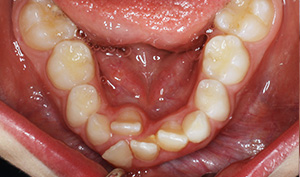
Crowding
Crowding happens when the jaw is too small to accommodate all of the teeth and the teeth move in the wrong directions as they attempt to fit in the arch. Teeth may stick out, twist or overlap. Crowded teeth can be caused by genetics, losing baby teeth too early or too late, or a discrepancy in the tooth-to-jaw-size ratio.
Crowded, crooked teeth are harder to effectively brush and floss, which increases your risk of tooth decay and gum disease. The teeth that stick out are more prone to injury and you may experience uneven wear of the enamel.
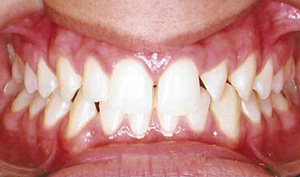
Spacing
When there’s too much room in the jaw and you’re left with spaces or gaps between two or more teeth, it’s called spacing. Gaps between the teeth can be due to tooth loss, genetics and habits like thumbsucking.
Food and plaque often build up in the spaces, making you more susceptible to tooth decay and gum disease. Spacing can also lead to bone loss and, in turn, tooth loss.
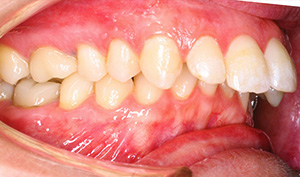
Overjet
Overjet teeth, or protruding teeth, are characterized by the upper front teeth sticking out too far in front of the lower teeth. Overjet teeth can be the result of genetics or habits, such as tongue thrust, prolonged pacifier use and thumbsucking. Protruding teeth that stick out are more likely to sustain trauma. Overjet teeth can also cause uneven wear of the enamel and jaw pain.
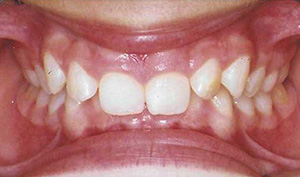
Overbite
Overbite refers to how much the upper front teeth vertically overlap the bottom teeth. Having some degree of overbite is normal, however, when the overlap is too large, it’s considered an excessive overbite, or deep bite. In extreme cases, the bottom teeth can even bite into the roof of the mouth.
An excessive overbite can be caused by genetics, oral habits, aging, and teeth grinding or clenching. In cases where an overbite is skeletal (i.e., related to the size or position of the jaw), early treatment can be the key to avoiding corrective jaw surgery.
If not treated, an overbite, or deep bite, can lead to excessive wear of the enamel, issues with chewing, jaw or TMJ pain, and an increased risk of tooth decay and gum disease. Some types of overbites are even tied to sleep apnea.
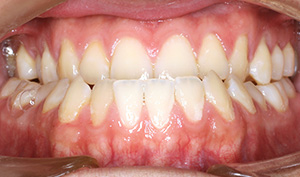
Underbite
A patient is said to have an underbite if the bottom teeth sit in front of the top teeth. It’s most often caused by the upper and lower jaw growing at different rates, which is determined by genetics. An underbite can result in difficulty chewing, speaking and breathing properly. It also puts strain on the chewing muscles and jaw joints, which may cause jaw pain and temporomandibular joint (TMJ) disorders.
Diagnosing and treating an underbite early is extremely important. In many cases, beginning Phase 1 treatment as early as age 7 or 8 will bring about the best results and help patients avoid the need for surgical correction later in life.
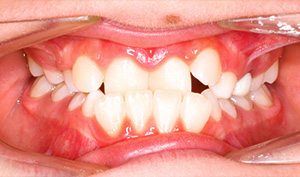
Crossbite
A crossbite is when some of the upper teeth are behind the lower teeth. If the teeth toward the front of the mouth are involved, it’s known as a front crossbite, or anterior crossbite. If the back teeth are affected, we call it a back crossbite, or posterior crossbite. Crossbites can be caused by genetics, trauma or habits like prolonged thumb sucking.
Crossbites are another orthodontic issue that is usually best treated early while a patient is still growing. Since patients often compensate by shifting their jaw to one side, if not treated, it can lead to permanent changes in the jaw and facial structure.
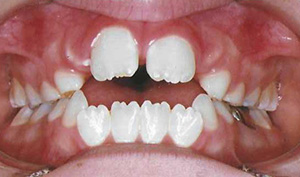
Open Bite
An open bite is when the top and bottom teeth don’t touch at all when biting down. An open bite can be caused by things like aggressive, prolonged thumb sucking or tongue thrust.
Having an open bite makes it difficult to bite into things and chew. It may also affect speech and cause headaches, jaw pain and the breakdown of the teeth that are touching, since they bear the brunt of the chewing forces. Early treatment can be beneficial.
Confident Smiles Start With Expert Care
Don’t let your smile insecurities hold you back! As a top orthodontist in Westminster, CO, we have the knowledge and expertise to achieve fantastic results for patients of all ages. Whether you have slightly crooked teeth, severe orthodontic concerns or anything in between, our doctors will tailor treatment to your unique needs. To get started, schedule a complimentary consultation today!

